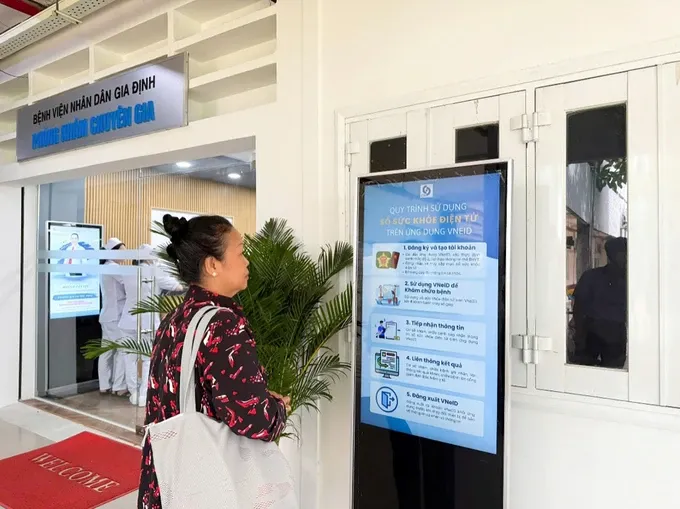
Embracing these developments is essential for enhancing national competitiveness, fostering socio-economic development, and ensuring the robust defense and security of the nation.
The remarkable development of information technology, the Internet, and high-tech applications is creating strong momentum, opening up great opportunities for our country to accelerate digital transformation, build a modern digital society, increase labor productivity, and improve the quality of life for the people. However, this journey still faces many challenges and requires joint efforts of all departments and sectors and consensus of the state machinery as well as people from all walks of life.
Applying digital transformation - The foundation of digital society
The 13th National Party Congress determined to achieve rapid and sustainable development, primarily driven by science, technology, innovation, and digital transformation. It is essential to innovate both thought and action, to proactively seize and effectively utilize the opportunities presented by the 4.0 industrial revolution in conjunction with the process of international integration.
This approach aims to restructure the economy, advance the digital economy, and foster a digital society, which should be regarded as a crucial element in enhancing productivity, quality, efficiency, and competitiveness.
Digital transformation is not simply the application of technology to management, production and business activities, but also a process of comprehensively changing the way of operating, thinking and creating value. Recognizing this importance, the Government has identified digital transformation as one of the main pillars of the national development strategy.
The national digital transformation project to 2025, with a vision to 2030, aims to turn Vietnam into an advanced digital nation, with three main pillars including digital government, digital economy and digital society. This is a clear demonstration of Vietnam's strong commitment to leveraging technology to promote comprehensive and sustainable development.
Digital Transformation and the Digital Society shapes Vietnam's future
Digital society encompasses a comprehensive framework, signifying a community where digital technology is extensively integrated and influences every facet of life, including education, healthcare, transportation, culture, entertainment, and everyday communication. Within a digital society, individuals transition from mere technology users to digital citizens, possessing the capability to access and utilize digital services with ease and efficiency.
In Vietnam, the emergence of a digital society is progressively unfolding, driven by the implementation of technology across various critical sectors. In the realm of education, online learning platforms such as VioEdu, Edmodo, and Zoom have facilitated connections between students and educators, particularly during the Covid-19 pandemic.
In the healthcare sector, applications like e-Health and Bluezone have enhanced individuals' access to information and health services. Furthermore, the significant advancement of digital payment platforms such as MoMo, ZaloPay, and ViettelPay has transformed financial transactions, providing users with increased convenience and security.
In order to effectively meet the evolving needs of the citizenry, a comprehensive expansion and upgrade of online public services is imperative. This necessitates the development of robust platforms encompassing electronic payment systems, online registration for administrative procedures, and the provision of accessible medical and educational services.
Furthermore, these services must transcend the mere provision of information and facilitate a seamless end-to-end experience for citizens, enabling them to complete the entire process, from initial registration to final result acquisition efficiently.
This marks a significant step toward establishing a modern digital government capable of effectively meeting the needs of citizens and businesses. As of now, all 83 ministries, provinces, and cities have published lists of administrative procedures that offer comprehensive online public services, in alignment with the Government-issued Decree No. 42/2022/ND-CP.
Ministries, agencies, and local authorities are expediting the digitization of records and administrative procedure outcomes, with the goal of ensuring that 100 percent of such records are linked to personal identification by 2025.
Opportunities and challenges
Vietnam is currently experiencing a period of significant digital transformation, presenting a wealth of opportunities. The widespread availability of 4G networks, the ongoing development of 5G infrastructure, and the continuous improvement of internet connectivity have created a favorable environment for the flourishing of digital economic activities.
Moreover, the nation possesses a valuable asset in its young, dynamic, and technologically adept workforce, a key factor in enabling Vietnam to adapt and lead in numerous areas of innovation.
The "National Digital Transformation Program to 2025, with a vision to 2030," spearheaded by the Government and the Prime Minister, provides a strategic framework for digital advancement. A core objective of this program is to achieve 100 percent completion and interconnectivity of all national databases by 2025, encompassing critical areas such as Population, Land, Business Registration, Finance, and Insurance.
This comprehensive data integration will facilitate the gradual release of government data, enabling the seamless provision of timely public services that require only a single declaration and encompass the entire life cycle of citizen interactions, ultimately fostering economic development and enhancing the quality of life for citizens.
























